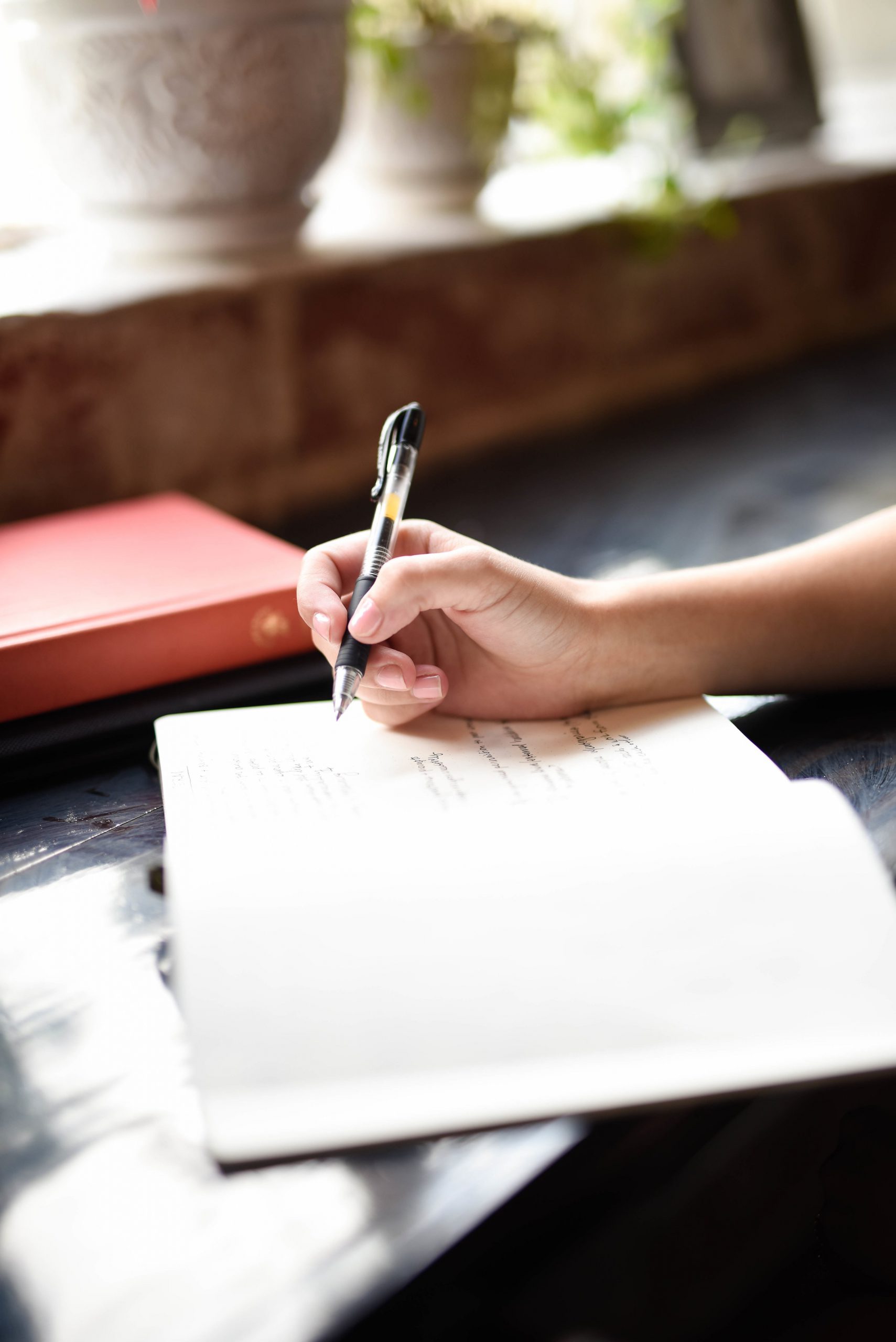It’s completely understandable that at times in our life thoughts and feelings can get a bit too much and we start feeling confused and overwhelmed. Writing your thoughts and feelings down is a great way to contain your feelings and calm yourself down. If you find it difficult to fall asleep, having a ‘worry diary’ can be very useful to take out of your brain and put onto paper what is keeping you awake at night.
Journaling can help you maintain positive mental health and reduce your stress levels by providing a healthy way to express yourself. It helps you feel more in control and enhances your awareness.
You might have kept a “Dear Diary” when you were a child and noted all your fears, secrets and key moments of the day. Journaling is similar but usually focuses less on what you’re doing and more on how you are feeling during a specific period of your life.
Through writing your thoughts and feelings down you can distance yourself from them and reflect on what you’re experiencing from a different perspective.
Especially when dealing with stress, the act of writing helps as it requires cognitive and rational effort and hence helps to counterbalance those moments when we feel swept off our feet by the intensity of our emotions.
Going back and reading your journal can also help you notice triggers and details that you might have missed when you were in the midst of it all. In time you might also notice any progress you’ve made, and patterns of behaviour you might wish to change.
So, how do we start journaling?
-
When – Try to be consistent and set the intention to write regularly in your journal. Ideally, you’d set aside a few minutes every day to write. This will help you create a positive habit faster. The author Julia Cameron, in her best seller book, The Artist’s Way, promotes the act of writing a ‘Morning Pages Journal’ as one of most effective tools for cultivating creativity, personal growth and change.
-
How – Choose a nice pen and journal to write in or, if you prefer writing on your phone, iPad or PC, create a specific folder for your reflections. Make the act of writing something enjoyable and easy. Choose a relaxing spot and turn it into a ritual for yourself and your wellbeing. Maybe make yourself a cup of your favourite tea for the occasion.
-
What – The best part of journaling is that you can write whatever you want. There is no right or wrong thing to write about. This is a place where you can exercise not judging yourself, nor worrying about what other people might think of what you write. Your writing doesn’t need to have any particular structure or theme. This is a space for you to freely express what feels true in the moment, regardless of coherence, spelling mistakes or typos.
Journaling is a useful tool that helps you to get to know yourself better, gain deeper understanding and clearer insight. It helps with managing anxiety, tackling problems sleeping and coping with low mood. Writing regularly creates a space for self-reflection where you can more easily identify negative thoughts and behaviours. It supports you to prioritise, identify triggers and find ways to deal with them better. Once you’ve identified what you find challenging, you can create a plan more easily to solve the issues and enhance your wellbeing. If facing difficulty sleeping, writing down worries at night time can help you create a list. You can then prioritise and focus in the morning, rather than keep worrying at night when, let’s face it, there’s much less we can do about things.
The pure act of writing will offer you an emotional outlet and will foster your creativity. You can also use your journal for drawings, doodles and collages. These are all great ways to relax your mind and enhance your positive mental health.
Author: Sarah Speziali, Chief Therapist at InsideOut






